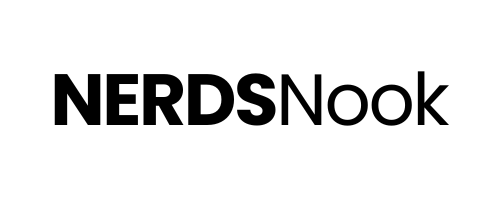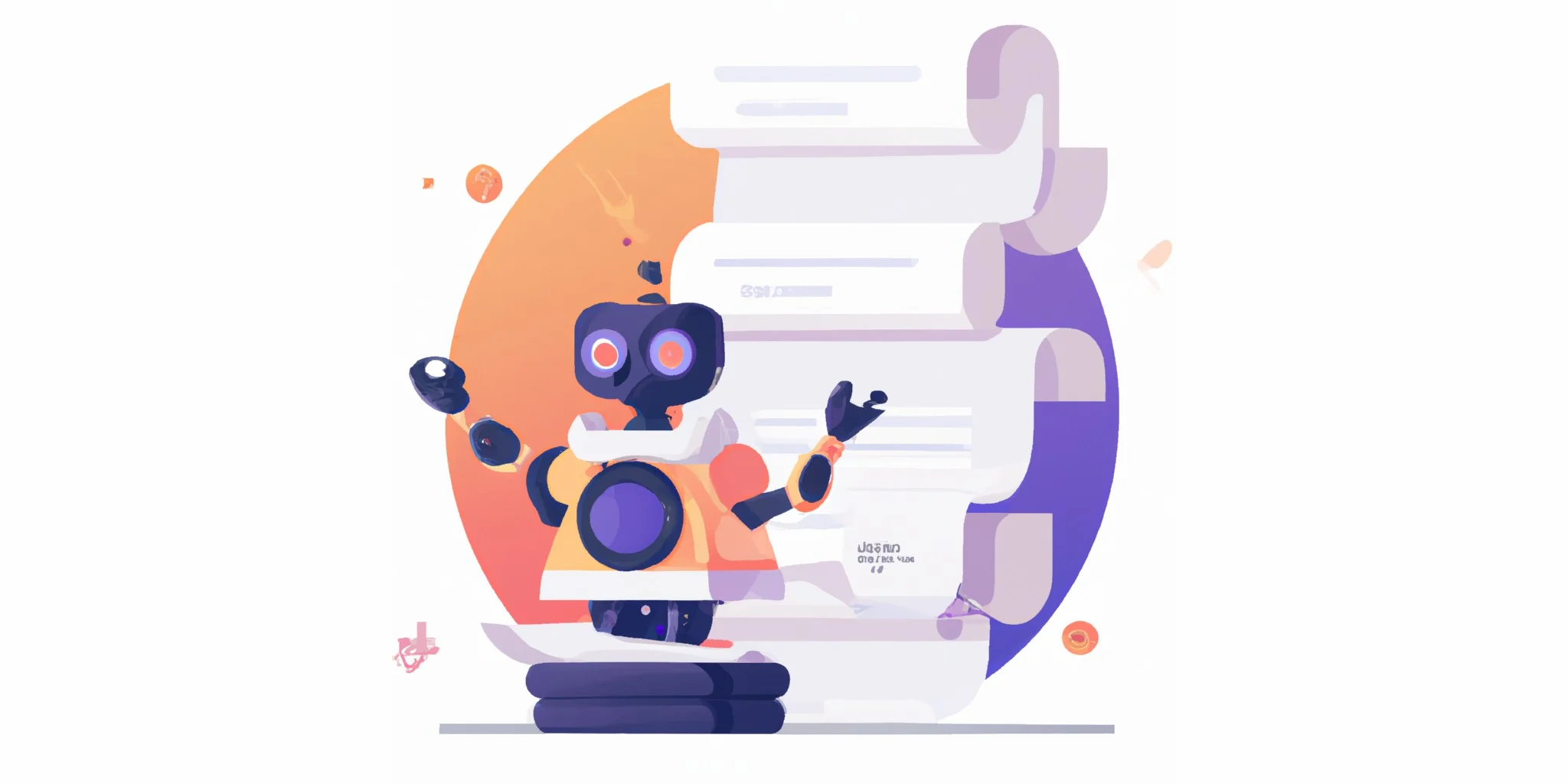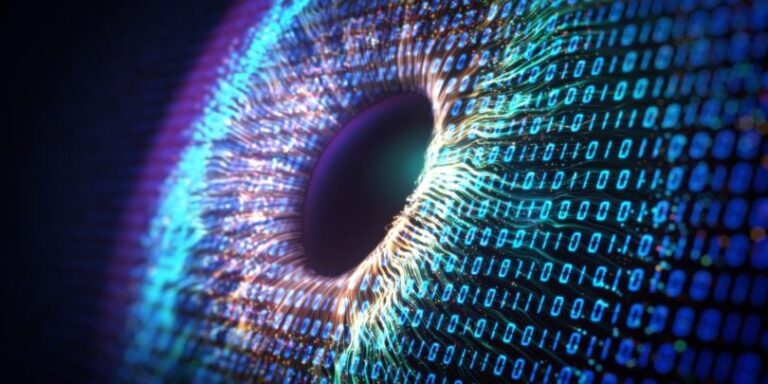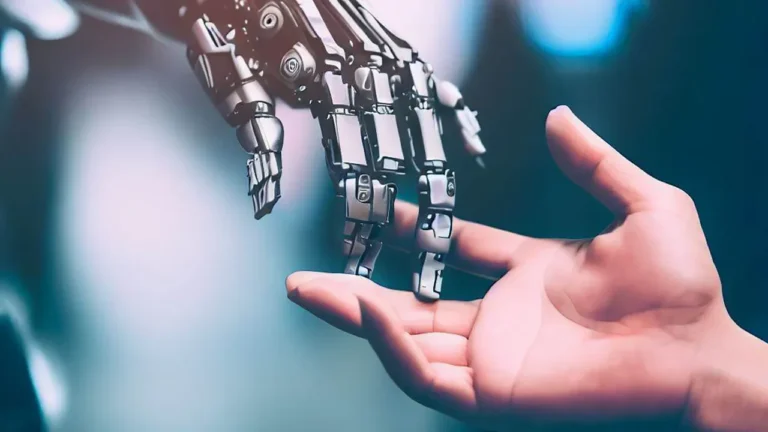AI in Content Creation: A Game-Changer for Creators
The landscape of content creation is evolving rapidly. At the forefront of this transformation is artificial intelligence (AI), a force reshaping how creators work, think, and produce. Whether you’re a seasoned writer, a marketer, or a casual content creator, AI is making waves with tools that enhance creativity, streamline processes, and redefine the boundaries of what’s possible. But how exactly is AI driving this revolution?
Why AI is the Next Big Thing in Content Creation
AI’s potential in content creation is vast. It’s not just about speed and efficiency—though these are impressive. AI has the ability to learn, adapt, and offer insights that were once the sole domain of human creativity. It’s the technology that’s taking the creative industry by storm, providing both inspiration and automation in ways we’ve never seen before.
The Rapid Rise of AI Tools in the Creative Space
From AI-powered writing assistants to content generators and editing tools, the rise of AI in the creative space is nothing short of meteoric. Tools like GPT, Jasper, and Writesonic are becoming household names for creators, offering assistance in generating articles, blogs, and even social media content with just a few prompts. This surge is indicative of a larger shift toward AI as a reliable co-creator in the digital age.
What is AI in Content Creation?
Defining AI and Its Role in the Creative Process
AI in content creation refers to the use of machine learning and algorithms to assist, augment, or automate the process of creating written, visual, and multimedia content. AI’s role is not to replace the human touch but to amplify it by providing tools that can generate ideas, structure content, and even create full drafts based on data-driven insights.
The Difference Between Human Creativity and AI-Powered Content
Human creativity is deeply rooted in emotion, intuition, and cultural understanding. AI, while powerful, lacks the depth of emotional resonance. It can mimic, analyze, and replicate patterns in creativity, but it doesn’t experience the world like a human. Instead, AI excels at generating content based on patterns, data, and vast amounts of information, which makes it a great tool to enhance the creative process, not replace it.
How AI Enhances Rather Than Replaces Human Creativity
Rather than viewing AI as a competitor, it’s better to see it as a collaborator. AI can handle repetitive tasks, offer new perspectives through data analysis, and help creators focus more on the creative elements that require human intuition and emotional insight. In essence, AI enhances the human ability to create by lifting the burden of routine tasks.
The Evolution of Content Creation
From Traditional Writing to AI-Assisted Content
Content creation used to be a manual process—hours spent researching, drafting, editing, and publishing. With AI, much of this grunt work can be automated. AI tools can generate outlines, suggest headlines, and even write first drafts, leaving creators with more time to refine and perfect their work.
How AI is Changing the Game for Modern Creators
For modern creators, AI is more than just a tool—it’s a game-changer. With AI, creators can produce high-quality content faster, target their audience with more precision, and engage in new types of content production like video editing or design, all with minimal effort. The possibilities are expanding daily.
How AI Works in Content Creation
The Algorithms Behind AI Writing Tools
At the heart of AI in content creation are algorithms—mathematical models designed to process vast amounts of text and language data. These algorithms identify patterns, make predictions, and learn from feedback, allowing AI to generate coherent and contextually relevant content.
How AI Understands Language and Tone
Natural language processing (NLP) enables AI to understand the nuances of language. Through this, AI can adapt to different tones—whether conversational, formal, or technical. It analyzes the context and structure of sentences to ensure the content aligns with the intended style.
Breaking Down the Content Creation Process with AI
AI breaks content creation into manageable steps. It starts with generating ideas, followed by structuring the content, drafting, and finally, editing. Each stage can be influenced by AI, offering suggestions for improvements, SEO optimization, and stylistic changes based on the creator’s goals.
Key Benefits of AI in Content Creation
Faster Content Production without Sacrificing Quality
AI accelerates the creation process. It helps creators generate high-quality content in a fraction of the time it would take manually. More importantly, this speed doesn’t come at the expense of quality, as AI can refine content to meet specific standards.
Personalization at Scale: How AI Tailors Content to Your Audience
AI excels at personalization. By analyzing audience data, it can help tailor content to specific demographics, interests, and behaviors. Whether it’s adjusting tone or suggesting different topics, AI ensures that content resonates with its intended audience.
Efficiency and Consistency: A Creator’s Best Friend
Consistency is key in content creation. AI ensures that creators maintain a consistent voice, tone, and style across all platforms. It also takes care of repetitive tasks, allowing creators to focus on the strategic and creative elements of their work.
Popular AI Tools in Content Creation
Exploring the Top AI Tools for Writers and Marketers
AI tools like GPT, Jasper, and Copy.ai are leading the charge in writing. These tools help writers generate content from scratch, assist in brainstorming, and offer detailed editing suggestions. For marketers, tools like HubSpot’s AI content assistant make it easier to plan, execute, and optimize content strategies.
How AI Tools Like GPT are Reshaping the Landscape
GPT (Generative Pre-trained Transformer) models are changing the content game by providing the most human-like AI-generated text. These models can handle everything from social media posts to detailed reports, creating a seamless blend of human and machine-generated content.
AI in Content Strategy
How AI Can Help Creators Plan Effective Content Strategies
AI is a powerful ally in content strategy. By analyzing trends, audience behavior, and competitor data, AI can help creators map out effective strategies. It helps identify gaps in content and provides insights on what topics will resonate with the target audience.
Leveraging AI for SEO Optimization and Keyword Research
AI tools excel at SEO. By analyzing keywords, search trends, and competition, AI can suggest the best terms to target, making sure your content is not only creative but also optimized for search engines.
AI and Creativity: Myth vs. Reality
Can AI Be Truly Creative?
While AI can mimic creativity by generating new content based on patterns, it lacks the emotional and experiential depth that human creativity brings. However, it offers a unique form of creativity driven by data and computation.
Debunking the Myth: Why AI Isn’t Replacing Creators
AI is a tool, not a replacement. It cannot replicate the human ability to connect emotionally with an audience or create art from lived experience. Instead, it augments creators’ abilities by providing efficiency and new perspectives.
The Power of Human-AI Collaboration in Creative Projects
When human intuition and AI’s analytical power come together, the result is a more potent creative process. This collaboration allows creators to think beyond traditional methods and leverage technology to enhance their output.
AI-Powered Content Ideas: Where Creativity Meets Innovation
Generating Blog Topics and Ideas with AI
AI tools can analyze current trends, audience preferences, and even competitor content to suggest fresh and relevant blog topics. It’s a great way to overcome writer’s block and stay ahead of the curve.
AI in Visual and Video Content Creation
AI is also making its mark in visual content. From AI-driven video editing tools to AI-generated art, creators now have access to tools that simplify the process of producing visually stunning content.
AI in Social Media Content Creation
How AI is Helping Creators Craft Engaging Social Posts
AI tools analyze audience data to craft highly engaging and relevant social media posts. By optimizing post timing, content type, and language, AI ensures that social media strategies yield better results.
Automating Social Media Content Calendars with AI
AI can automate social media calendars, scheduling posts for optimal engagement times and ensuring a consistent flow of content. This takes the guesswork out of content scheduling, allowing creators to focus on quality.
Challenges of AI in Content Creation
The Limitations of AI in Creativity
While AI is powerful, it has limitations. It struggles with deep emotional understanding and cultural nuance, which are essential to truly creative work. It also lacks the spontaneity of human thought.
Balancing Automation and Human Touch
The challenge lies in finding the balance between AI automation and the human touch. Creators must learn to integrate AI into their workflow without losing the personal elements that make their content unique.
AI-Driven Content Personalization
How AI is Creating Hyper-Personalized Content for Every Audience
AI’s ability to analyze large datasets allows it to create highly personalized content. Whether it’s adjusting tone, language, or even format, AI helps tailor content to individual audience preferences.
Using AI to Target Niche Audiences with Precision
AI-driven tools can segment audiences with precision, targeting niche groups with content specifically designed to engage them. This helps creators build stronger connections with smaller, more focused audiences.
The Future of AI in Content Creation
What’s Next for AI and Creative Industries?
The future of AI in content creation looks bright. As technology advances, we can expect more sophisticated tools that blend human and machine creativity seamlessly. AI could also expand into more areas of creative production, from music to film.
How AI Could Evolve in the Content Creation Space
In the coming years, AI will likely become more intuitive and context-aware. It will offer deeper insights into audience behavior and content trends, further enhancing the creator’s ability to produce impactful content.
Ethical Considerations in AI Content Creation
The Debate on AI-Generated Content Ownership
As AI-generated content becomes more prevalent, questions arise about ownership. Who owns the content created by AI—its user, the developer, or the AI itself? These ethical concerns will shape the future of content creation.
Ensuring Authenticity and Avoiding Plagiarism with AI
One of the key challenges with AI-generated content is ensuring authenticity. Creators must take care to avoid accidental plagiarism and maintain the originality of their work, even when using AI tools.
Best Practices for Creators Using AI
How to Effectively Incorporate AI into Your Workflow
The key to using AI effectively is integration. Creators should use AI to automate repetitive tasks, gather data insights, and optimize content, while still maintaining control over the creative direction.
Tips for Combining Human Creativity with AI Precision
Balance is essential. Use AI for structure, data analysis, and optimization, but ensure that human creativity guides the final product. This synergy will produce the best results.
AI for Data-Driven Content Creation
How AI Analyzes Trends and Data to Shape Better Content
AI tools analyze massive amounts of data to identify trends and patterns. By using this data, creators can craft content that is not only engaging but also timely and relevant.
Using AI Insights to Predict Audience Behavior
Predictive analytics powered by AI helps creators anticipate audience needs and behaviors. This allows for proactive content creation, ensuring that creators are always ahead of the curve.
AI’s Impact on Content Quality
Maintaining High-Quality Standards with AI Assistance
With AI’s help, creators can maintain consistency and quality in their content. AI tools ensure that grammar, tone, and structure are on point, allowing creators to focus on creativity.
How AI Can Help Creators Improve Content Over Time
AI learns from each piece of content it analyzes. Over time, it provides feedback that helps creators refine their style, optimize engagement, and produce higher-quality work with each iteration.
Case Studies: AI Success Stories in Content Creation
Real-World Examples of AI Transforming Creative Processes
From brands using AI to generate thousands of product descriptions to media companies creating personalized content for readers, AI success stories are everywhere. These examples show how AI is transforming the creative process across industries.
How Creators and Brands Are Benefiting from AI Tools
Creators and brands alike are leveraging AI tools to streamline their workflows, improve efficiency, and scale their content production. The results speak for themselves—more content, less time, and better engagement.
Should Creators Fear AI?
Why AI is an Opportunity, Not a Threat
While some fear that AI may replace human creators, the reality is far different. AI offers opportunities to enhance creativity, improve efficiency, and explore new possibilities, making it a valuable tool rather than a competitor.
The Role of Creators in a World Where AI Shapes Content
In a world where AI shapes content, creators will still hold the key to human connection, emotion, and originality. AI may assist, but the soul of content will always come from human creativity.
Conclusion
Embracing AI as a Game-Changer in the Creative Industry
AI is undoubtedly a game-changer in content creation. It offers tools that allow creators to work smarter, faster, and more effectively. By embracing AI, creators can unlock new levels of creativity and productivity.
The Future of AI and Human Collaboration in Content Creation
The future lies in collaboration—where human creativity and AI’s computational power come together to push the boundaries of content creation. Together, they will shape the future of the creative industry, offering endless possibilities for those willing to embrace the change.



